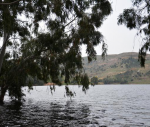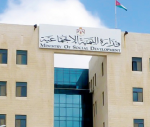You are here
Triangle of despair
Dec 12,2015 - Last updated at Dec 12,2015
During the past five years, some 100,000 unaccompanied migrant children from Guatemala, Honduras and El Salvador have been apprehended at the southern border of the United States.
They are a particularly tragic subset of the approximately 3 million migrants from Central America’s so-called Northern Triangle who have reached the US in the past two decades.
The roots of this exodus are a tangle of structural problems. Weak, fiscally challenged governments, endemic corruption, struggling economics, and high levels of crime have made these three small countries difficult places to live. And changing that will likely require assistance from the US.
While the challenges of the Northern Triangle cannot be addressed through foreign assistance alone, they are unlikely to be overcome without it.
The feebleness of the region’s governments is a key problem. The Northern Triangle has among the lowest tax burdens in the world, at just below 16 per cent of GDP, which severely limits the ability of its governments to mitigate the impact of their countries’ high levels of poverty and inequality.
This fiscal weakness is compounded by endemic corruption, especially in Guatemala and Honduras. Relative to economic size, the fraud recently uncovered in Honduras’ social security system dwarfs the massive bribery scandal at Brazil’s Petrobras by a factor of 20.
Throughout the Northern Triangle, political interference in judicial processes and regulatory bodies is rife.
Furthermore, weak states struggle to assert effective control over their territory, a major boon for crime syndicates.
There is no doubt that the most pressing challenge faced by the region is its extraordinarily high levels of criminality.
In 2014, Honduras alone had more homicides than the 28 European Union member states combined. Rampant violence can be traced to the pervasive presence of organised crime, particularly drug trafficking.
Close to 90 per cent of the cocaine destined for the US travels through Central America.
The majority of those who leave the Northern Triangle do so for economic reasons.
Despite efforts by all three countries to open up their economies, their per capita income growth over the past decade has been mediocre at best — leaving the majority of the population mired in poverty or economic vulnerability.
It is only with remittances from migrants that these economies manage to remain afloat, amounting to 10 per cent of Guatemala’s GDP and nearly 17 per cent of El Salvador’s. Here, too, Honduras is in the lead, with remittances accounting for 18 per cent of its economy.
Tackling the region’s problems will require assistance in several areas. In November, the US announced the Alliance for Prosperity in the Northern Triangle, an initiative intended to create “an economically integrated Central America… with strong democratic institutions, with more accountable, transparent and effective public institutions, and where citizens feel safe and can build their lives in peace and stability”.
The project is timely and well conceived, embodying the long-term approach that will be essential to bring about structural change and, one hopes, contain migration flows. The US Congress should authorise the necessary funding soon.
In the meantime, the international community needs to support the work of the United Nations International Commission Against Impunity in Guatemala.
Even before the commission played a crucial role in the investigation that led to corruption charges against President Otto Pérez-Molina (who resigned as a result), it had proved its value. Its experience provides a blueprint for the design and operation of similar bodies in other countries, most notably Honduras.
The most important help the international community could give the Northern Triangle is to continue nudging its governments towards structural reforms.
While it is not clear that the region’s current political elite will prove to be a suitable partner for such an effort, the unprecedented popular mobilisation against corruption in Guatemala and Honduras suggests that their newly assertive civil societies could be an important ally.
The seriousness of the region’s political leaders should be gauged according to two criteria: their readiness to push for robust and progressive tax systems and their sincerity about introducing checks and balances and promoting judicial independence.
Without the first, the economy will continue to sputter. Without the second, any effort to tackle corruption is doomed to fail.
If external actors, particularly the US, are serious about helping the Northern Triangle, they should not be shy about demanding these two fundamental reforms.
Central America needs help. But only change from within can ensure a future in which the region’s young people choose to build their lives at home.
The writer, a former vice president of Costa Rica, is director of the Inter-American Dialogue’s Peter D. Bell Rule of Law Programme. ©Project Syndicate, 2015. www.project-syndicate.org











